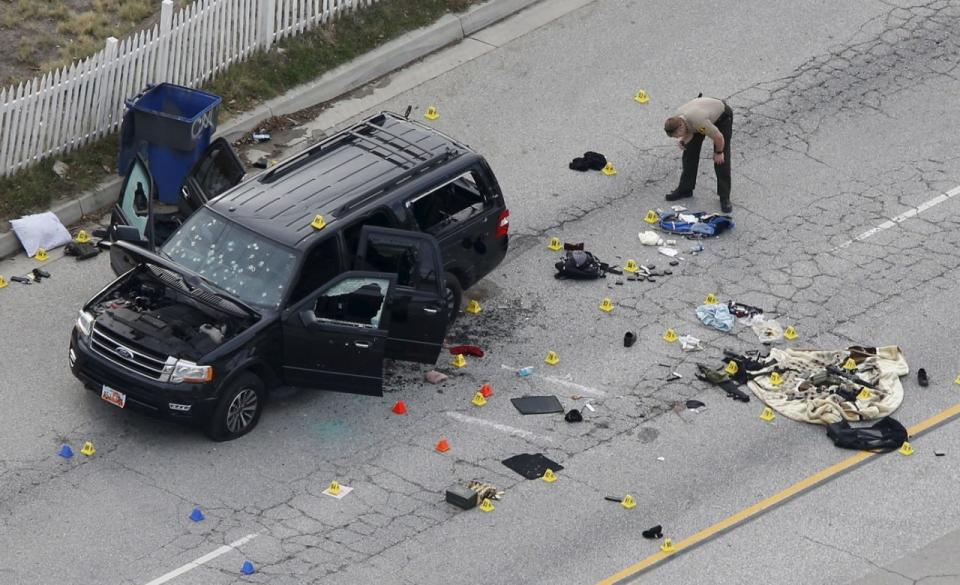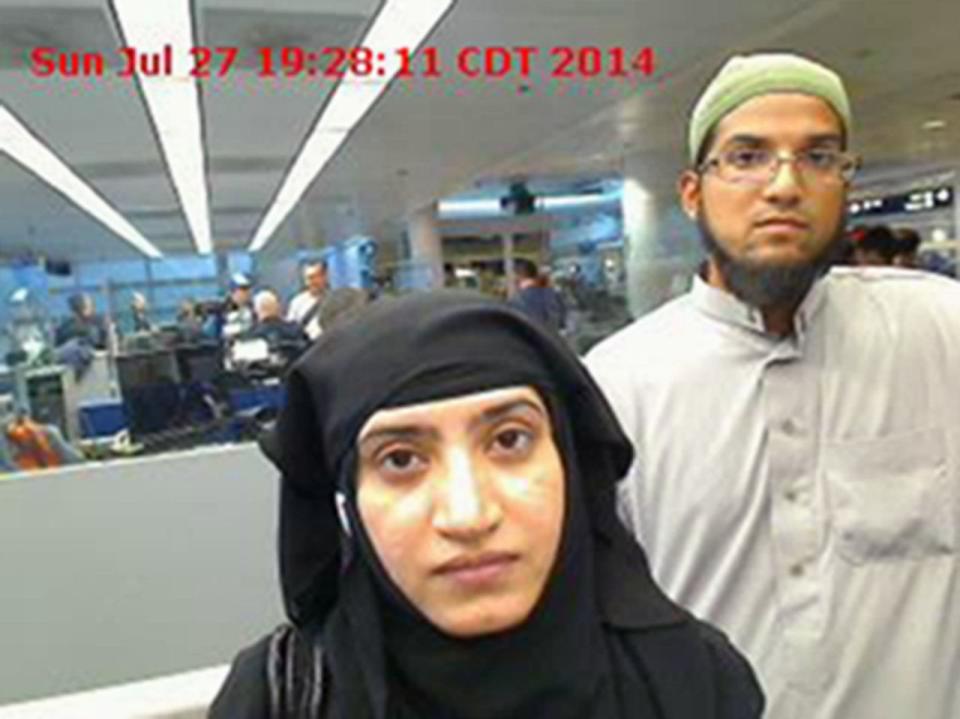16 places that shaped the 2016 election: San Bernardino, Calif.

By Nov. 9, the votes will have been cast and counted, there will be a winner and a loser, and the country will begin a slow return to normal. Historians will have their say on the outcome, but all of us who have lived through this election will carry away indelible memories of a shocking year in American history: of a handful of ordinary people, swept up in the rush of history; of a series of moments on which the fate of the nation seemed, at least briefly, to turn; and of places on the map that became symbols of a divided nation. As we count down to Election Day, Yahoo News has identified 16 unforgettable people, moments and places.
It was just the kind of setting that a terrorist might choose to attack for its very ordinariness: a conference-cum-holiday-lunch for the San Bernardino County health department, on the morning of Dec. 2, 2015. Syed Rizwan Farook, 28, an employee, left the meeting and returned with his wife, Tashfeen Malik, both in ski masks and armed with handguns and assault rifles. In less than four minutes they fired more than 80 rounds, killing 14 and seriously wounding about 20 others. They fled by car and were killed later that day in a shootout with police.
There were deadlier mass shootings before, and the toll would be exceeded some six months later at the Pulse nightclub in Orlando, but something about this attack made it singularly unsettling — the cold-blooded way in which Farook, who had no known criminal record and no apparent evidence of mental illness, slaughtered people he had worked alongside for years, or the chilling detail that the couple left behind their 6-month-old daughter in the care of Farook’s mother. And it fit a pattern that was becoming disturbingly familiar: Farook was an American citizen, born in Chicago to immigrants from Pakistan; Malik, whom he met on the Internet and married in Saudi Arabia in 2014, was a legal permanent resident. He was a devout Muslim but gave no indication of radical leanings — and although the couple was retroactively claimed by ISIS as “soldiers of the caliphate,” there was nothing to indicate they were acting under orders from ISIS or any other organization. This, apparently, was their own idea.

The repercussions were swift, and took the bizarre form of a debate over what to call the attack. In only his third Oval Office address, President Obama declared the shootings “an act of terrorism, designed to kill innocent people,” and asserted that “the two of them had gone down the dark path of radicalization, embracing a perverted interpretation of Islam that calls for war against America and the West.” (Italics added.) He did not, however, use the specific phrase “radical Islamic terrorism.” Republicans ever since have cited this as a sign that Obama, and by extension Hillary Clinton, isn’t really serious about protecting America.
“These are radical Islamic terrorists and she won’t even mention the word, and nor will President Obama. He won’t use the term ‘radical Islamic terrorism,’” Donald Trump said during the second presidential debate on Oct. 9. “Now, to solve a problem, you have to be able to state what the problem is or at least say the name. She won’t say the name, and President Obama won’t say the name.”
Clinton gave her opinion in an interview in June 2016, after the Orlando nightclub shooting. “From my perspective, it matters what we do more than what we say. And it mattered we got bin Laden, not what name we called him. Whether you call it radical jihadism or radical Islamism, I’m happy to say either. I think they mean the same thing.” — By Jerry Adler
Shooting in San Bernardino, CA
Images in the wake of the attack at the Inland Regional Center, where 14 people were killed. >>>
Trump’s Muslim ban draws extraordinary rebukes
Donald Trump’s proposal to ban all Muslims from entering the United States sparked categorical rebukes from his rivals in the presidential race, from traditionally neutral figures in his own party, and from at least one national conservative Christian leader. >>>
Trump, Clinton talk terror and gun control in wake of San Bernardino attack
In the aftermath of the shooting the presidential candidates hit the Sunday morning talk show circuit, where the ideological divide on the topics of terrorism and gun control was in stark partisan relief. >>>
Trump has big plans for ‘radical Islamic’ terrorists, 2016 and ‘that communist’ Bernie Sanders
In an interview in November 2015 with Yahoo News National Correspondent Hunter Walker, Trump addressed heightened security measures to prevent terror attacks. When Yahoo News asked Trump whether this might require registering Muslims in a database or giving them a form of special identification that noted their religion. He wouldn’t rule it out: “We’re going to have to — we’re going to have to look at a lot of things very closely.” >>>
Live blog: Shooting in San Bernardino
The Yahoo News team minute-by-minute coverage from Dec. 2, 2015. >>>
The horrible shooting that took place in San Bernardino was an absolute act of terror that many people knew about. Why didn’t they report?
— Donald J. Trump (@realDonaldTrump) December 4, 2015
Weapons of war like those used in Orlando and San Bernardino have no place on our streets.https://t.co/jTFExpjcPd
— Hillary Clinton (@HillaryClinton) June 13, 2016
Politicians react to shooting in San Bernardino, CA

 Yahoo Sport
Yahoo Sport 











































